
SIMAtlantic
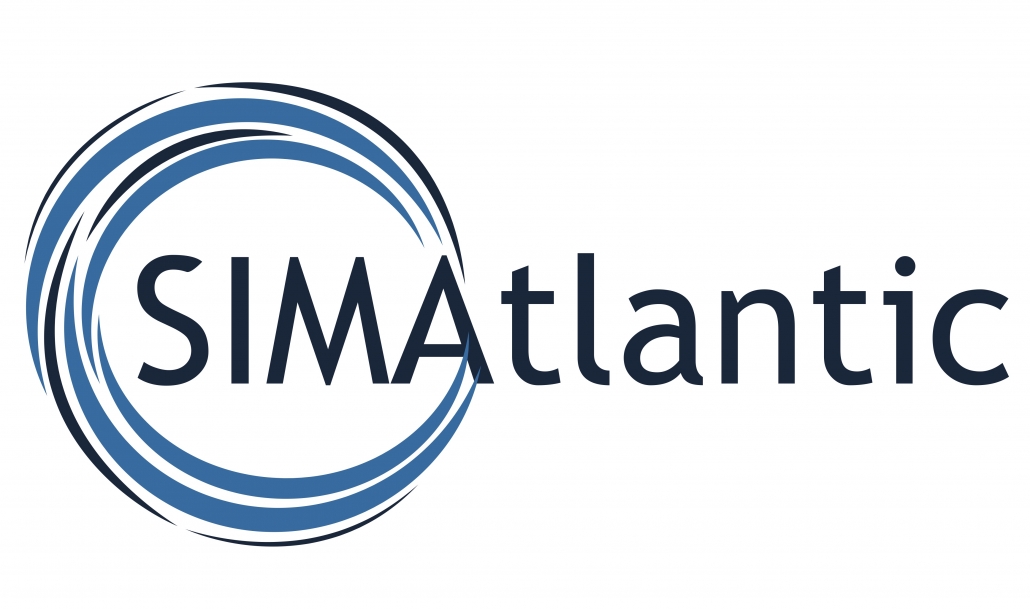
- Title
-
SIMAtlantic – Supporting the Implementation of Maritime Spatial Planning in the Atlantic
- Start Year
-
2019
- End Year
-
2021
- Funding Body
-
Co-funded by the European Maritime and Fisheries Fund
- Coordinator
-
UCC
- Research Area
-
Coastal and Marine Systems
- Key Contact(s)
-
Dr Anne Marie O’Hagan (PI), Dr Martin Le Tissier & Hester Whyte
Introduction
SIMAtlantic aims to support the establishment and implementation of maritime spatial planning (MSP) in five European Atlantic countries: France, Ireland, Portugal, Spain, and the United Kingdom. The project was co-funded by the European Union and implemented by partners representing academic institutions, marine planning authorities, and scientific public bodies, who worked together to share knowledge and ultimately build long-lasting cooperation in MSP. The project ran between July 2019 and September 2021.
The project produced a suite of deliverables that addressed methodologies, practical guidance documents, communication tools, and a catalogue of relevant information to assist the work of MSP authorities. These were tested in specific pilot study areas. The work culminated in an ‘Atlantic Vision’ – a roadmap for MSP in the European Atlantic marine region. All the deliverables are available under the ‘Deliverables’ tab.
SIMAtlantic and Maritime Spatial Planning (MSP)
What is Maritime Spatial Planning?
Maritime spatial planning is a policy tool enabling public authorities and other stakeholders to apply a coordinated, integrated and cross-border approach to planning and managing the demand for maritime space for different purposes. It balances economic, social and environmental aspects to promote the coexistence of activities and support sustainable development.
Maritime Spatial Planning in the EU
In July 2014, the European Parliament and Council adopted the Maritime Spatial Planning Directive (2014/89/EU), requiring the creation of national maritime plans for each coastal Member State by 2021. Using an ecosystem-based approach, the MSP Directive aims to mitigate the collective pressure of human activities while promoting the holistic management of marine resources.
Our Approach
The project partners implemented a series of work packages designed to assist Member States in their development of Maritime Spatial Plans and promote MSP as an efficient and coherent cross-sectoral tool for planning maritime activities. Activities focussed on ‘Atlantic Visioning’ and case studies and cross-cutting themes to fulfil the project objectives, which were to:
- Assist authorities in managing marine activities in cross-border areas
- Communicate the key steps in MSP to a range of stakeholders
- Explore how to work together on other shared objectives such as Strategic Environmental Assessment
- Develop knowledge and practice on cross-border Strategic Environmental Assessment and MSP
- Review and identify the best available data to support analysis of land-sea interactions
- Present a tested methodology for approaching land-sea interactions in MSP
- Facilitate MSP cooperation across the European Atlantic
- Develop a catalogue of relevant data and documents
- Produce an ‘Atlantic Vision’ roadmap for MSP in the European Atlantic
Expected Impacts
SIMAtlantic project was designed to meet the current needs of MSP authorities in the European Atlantic region, while implementing actions that provide outputs of value, which transcend the duration of the project.
Details of each Theme and Case Study can be found in the ‘Deliverables’ section with a complete portfolio of SimAtlantic project outputs.
Deliverables
The project outcomes act as a key resource for Member State MSP competent authorities and stakeholders. They serve as an example to other sea basin areas, given it will have a transboundary focus transferable to other regions.
‘Atlantic Visioning’ to help ensure policy coherence in the region:
- D1.1-Description-of-MSP-relevant-information-for-Atlantic-countries.pdf
- D1.2-Current-and-future-uses-and-needs-in-the-European-Atlantic-region.pdf
- D-1.3-SIMAlantic-Atlantic-Vision-Final.pdf
Case study: Cross-border management guidance.
Case study: A web portal for MSP-related data and information covering the Marine Protected Area of the Gironde Estuary and Pertuis Sea in France.
Case study: A cross-border cumulative effects assessment for the north-western Iberian Peninsula in Portugal and Spain.
Case study: A study of land-sea interactions in the Irish Sea.
Theme 1: Governance, focusing on the interaction of MSP with other legal requirements.
Theme 2: Cumulative effects within cross-border Strategic Environmental Assessment.
Theme 3: Data use and sharing, establishing a data and information catalogue.
Theme 4: Land-sea interactions in the context of MSP, exploring innovations in relation to the management of opportunities and risks.
To support the outcomes of the project a series of additional outputs were produced:
- To support the outcomes of the Case Studies and Theme studies a series of Factsheets were made showcasing the purpose and key findings from each case study and cross-cutting theme.
- To support the deliverable D1.2-Current-and-future-uses-and-needs-in-the-European-Atlantic-region, a handbook.
- Approaching activities’ interaction by building scenarios: a proposed method to strategic thinking was produced. E1 HANDBOOK_final_inglés.pdf
- Abordando la interacción entre actividades mediante la construcción de escenarios: un método para la reflexión estratégica. E1 HANDBOOK_final_castellano.pdf
- To support the Case study: Cross-border management guidance a factsheet was produced. E2 SIMAtlantic Carlingford Fact Sheet_Draft6_AB_FINAL.pdf
- To support the Theme: Data use and sharing, establishing a data and information catalogue a series of additional reports were produced:
- Factsheets summarising information on how data for MSP is organised in each country – how it is monitored, assessed and kept. E3 Country factsheets.pdf
- A survey of the organisation of geographical data and needs relating to MSP for each Partner country. E3 SIMAtlantic data study survey results – EN.pdf
- E3 Résultats de l’enquête SIMAtlantic sur les données relatives à la PEM
- A summary factsheet to highlight the overall outcomes of the project was produced. Final-Brochure-SIMAtlantic.pdf
Final Conference
The SIMAtlantic conference took place on 15 September 2021. Its objective was to share learning and best practice from the SIMAtlantic project and elsewhere around Europe, to assist in shaping future cooperation and coherence in maritime spatial planning (MSP).
Sessions were aimed at a wide audience from researchers to policymakers, practitioners and stakeholders, while including everyone who shares an interest in maritime spatial planning, particularly the benefits and challenges of transboundary working. There were 150 participants from 24 different countries.
Programme
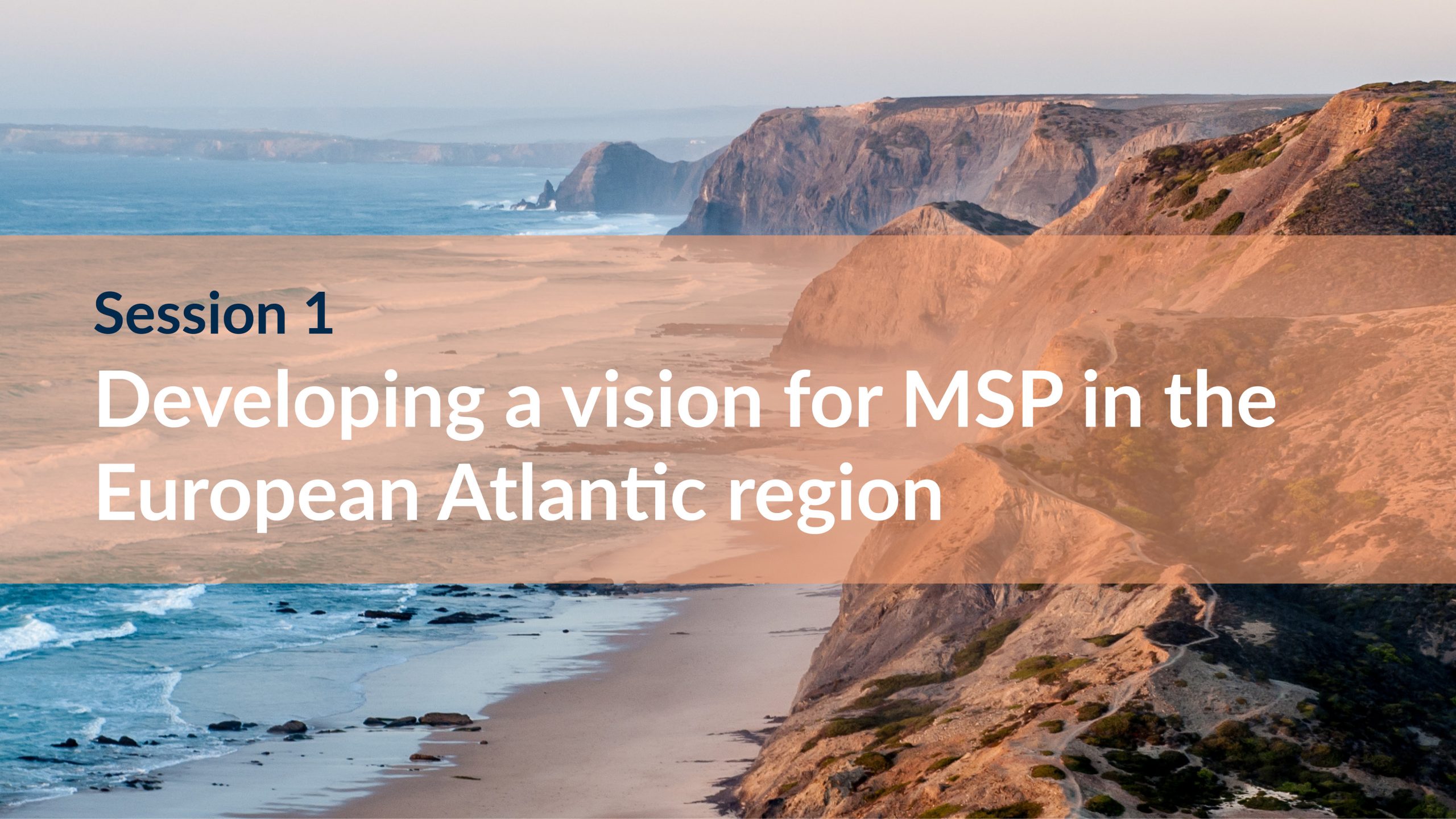
Using the characteristics and current spatial uses of the European Atlantic region and relevant policy drivers as a basis, this session provides perspectives on developing a vision for MSP in the region.
Chair:
Anne Marie O’Hagan, MaREI Centre, University College Cork: SIMAtlantic overview Session-1-AMOH.pdf
Speakers and panellists:
Julien Dilasser, Cerema: Current and future uses and needs of the Atlantic region Session-1-JD-CCN.pdf
Cristina Cervera Núñez, Instituto Español de Oceanografía (IEO, CSIC)
Adriano Quintela, CESEAM, Universidade de Aveiro: Atlantic vision for MSP Session-1-AQ.pdf
Juan Ronco, DG MARE, European Commission: Session-1-JR.pdf
Patrycja Enet, North Sea Focal Point, European MSP Platform: The North Sea and Maritime Spatial Planning Session-1-PE.pdf
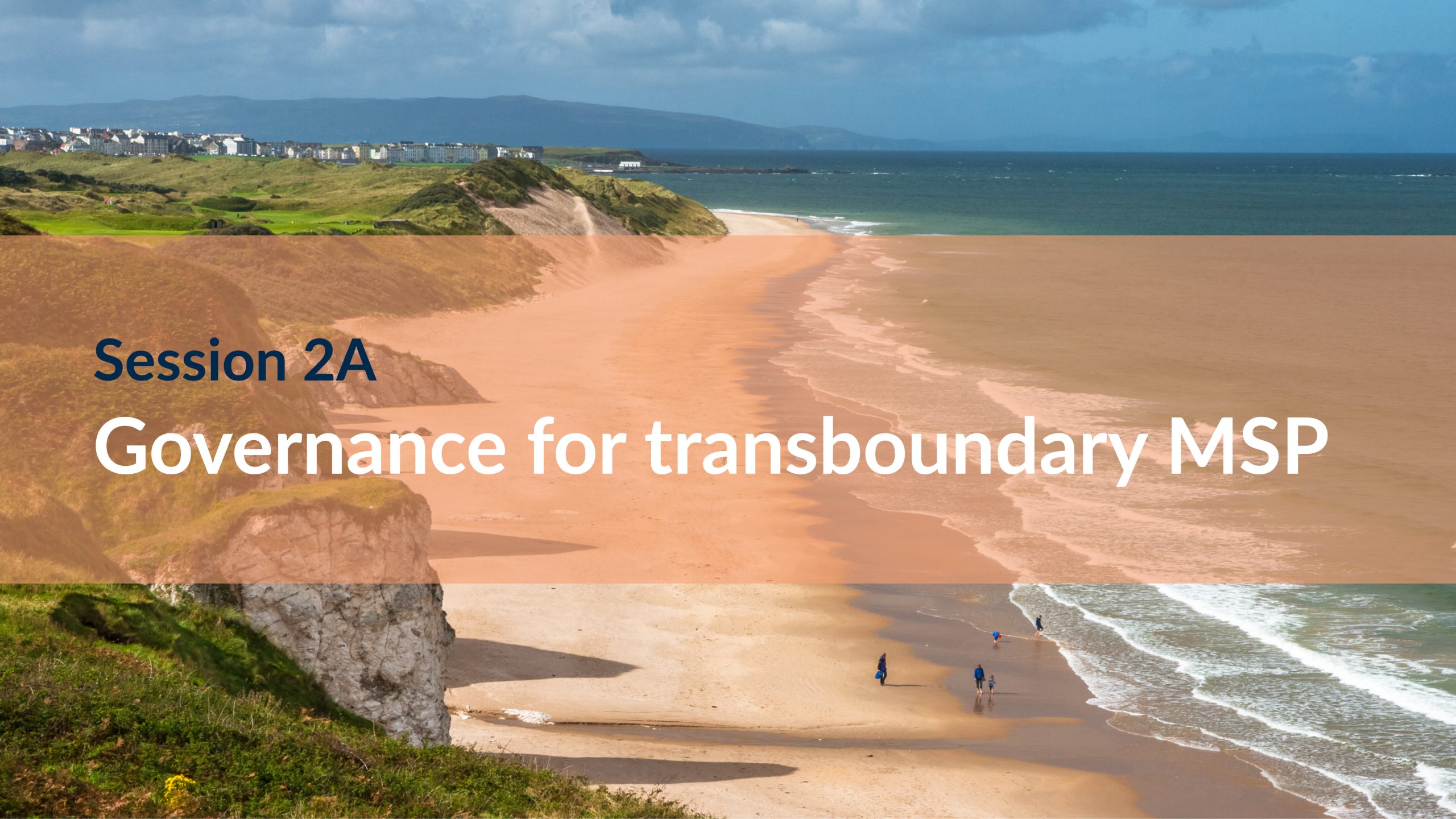
Exploring practical ways of communicating between countries, especially on issues with environmental impact, and mechanisms for long-lasting cooperation in the European Atlantic.
Chair:
Martin Le Tissier, MaREI Centre, University College Cork
Speakers and panellists:
Anne Marie O’Hagan, MaREI Centre, University College Cork: Current governance mechanisms in the European Atlantic – achieving cooperation and coherence Session-2A-AMOH.pdf
Adele Boyd, Agri-Food and Biosciences Institute (AFBI): Managing marine activities in transboundary ecosystems: Carlingford Lough case study Session-2A-AB.pdf
Steve Fletcher, University of Portsmouth: Transboundary issues for maritime spatial planning Session-2A-SF.pdf
Conor McCabe, Department of Housing, Local Government and Heritage

Considering questions of how transnational data sharing might support cross-border coherence of national maritime plans, how to effectively assess and spatially represent economic and social stakes, and how to deliver and explain complex maritime plans to enhance stakeholder ownership.
Chair:
Neil Alloncle, OFB: Communication portal on maritime spatial plans Session-2B-NA.pdf
Speakers and panellists:
Adeline Souf, Shom: Catalogue and overview of MSP – relevant data Session-2B-AS.pdf
Julien Dilasser, Cerema: Interactive map for maritime uses’ distribution and stakes Session-2B-JD.pdf
Amy Balding, Marine Management Organisation
Neal Gray, Marine Management Organisation
Sagraio Arrieta Algarra, Ministerio para la Transición Ecológica y el Reto Demográfico
Hervé Tréhein, Direction Interregional de la Mer Sud Atlantique
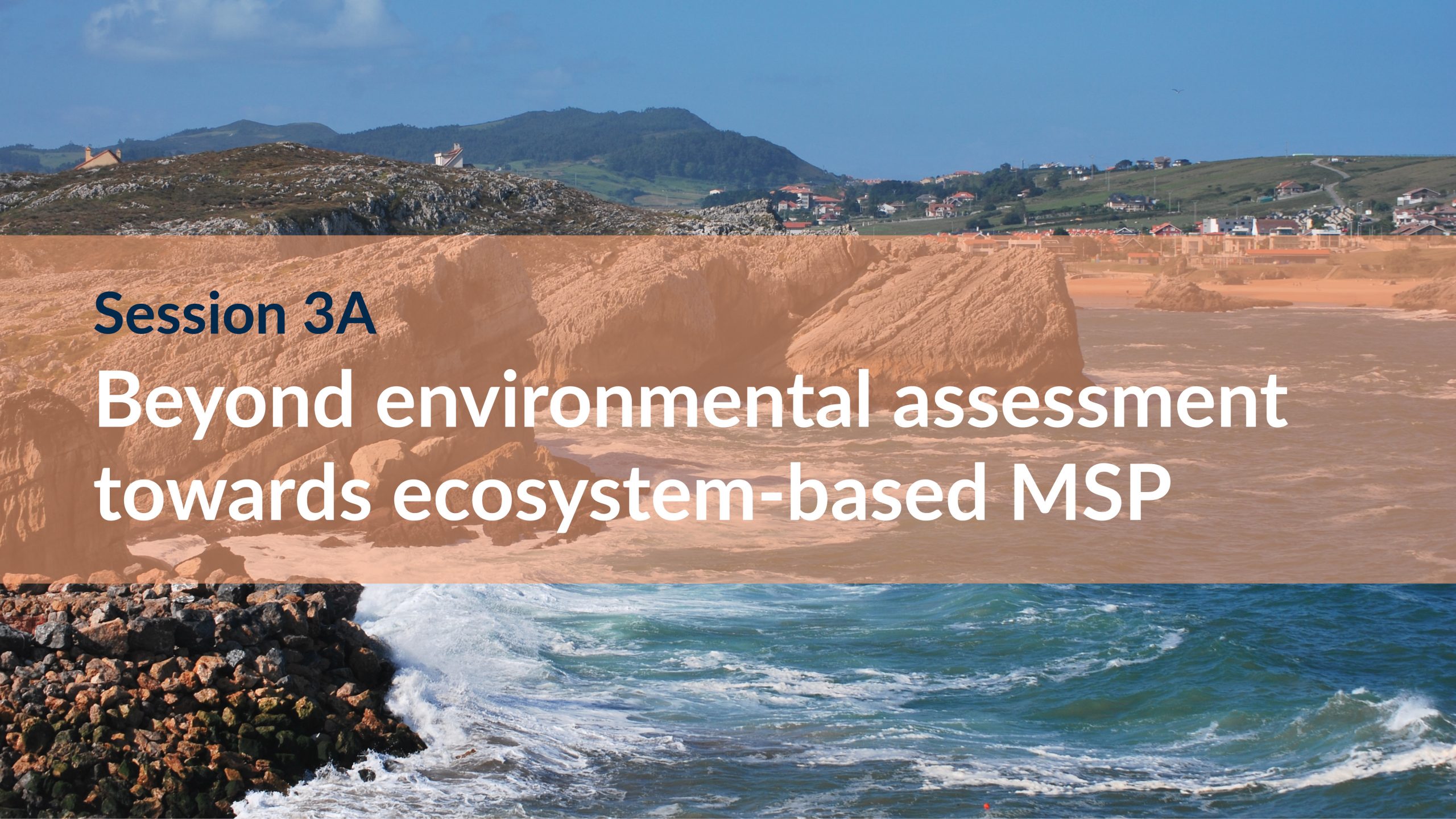
Investigating the role of cumulative impacts in strategic environmental assessment (SEA) and how these elements can be applied to operationalise ecosystem-based management (EBM) in MSP, including transboundary considerations.
Chair:
Helena Calado, Universidade dos Açores
Speakers and panellists:
Marta Vergílio, Fundo Regional para a Ciência e Tecnologia (FRCT): MSP advances on the European Outermost Regions: Importance of cooperation initiatives for ecosystem-based management Session-3A-MV.pdf
Mónica Campillos-Llanos, Instituto Español de Oceanografía (IEO, CSIC): Introduction to the CEA and SEA topic Session-3A-MCL.pdf
María da Luz Fernandes, CESAM, Universidade de Aveiro: Cross-border CEA for the north-western Iberian Peninsula: Methodology and lessons learned Session-3A-MLF.pdf
Adele Boyd, Agri-Food and Biosciences Institute (AFBI): CEA within Carlingford Lough, a transboundary sea lough Session-3A-AB.pdf
Adriano Quintela, CESAM, Universidade de Aveiro
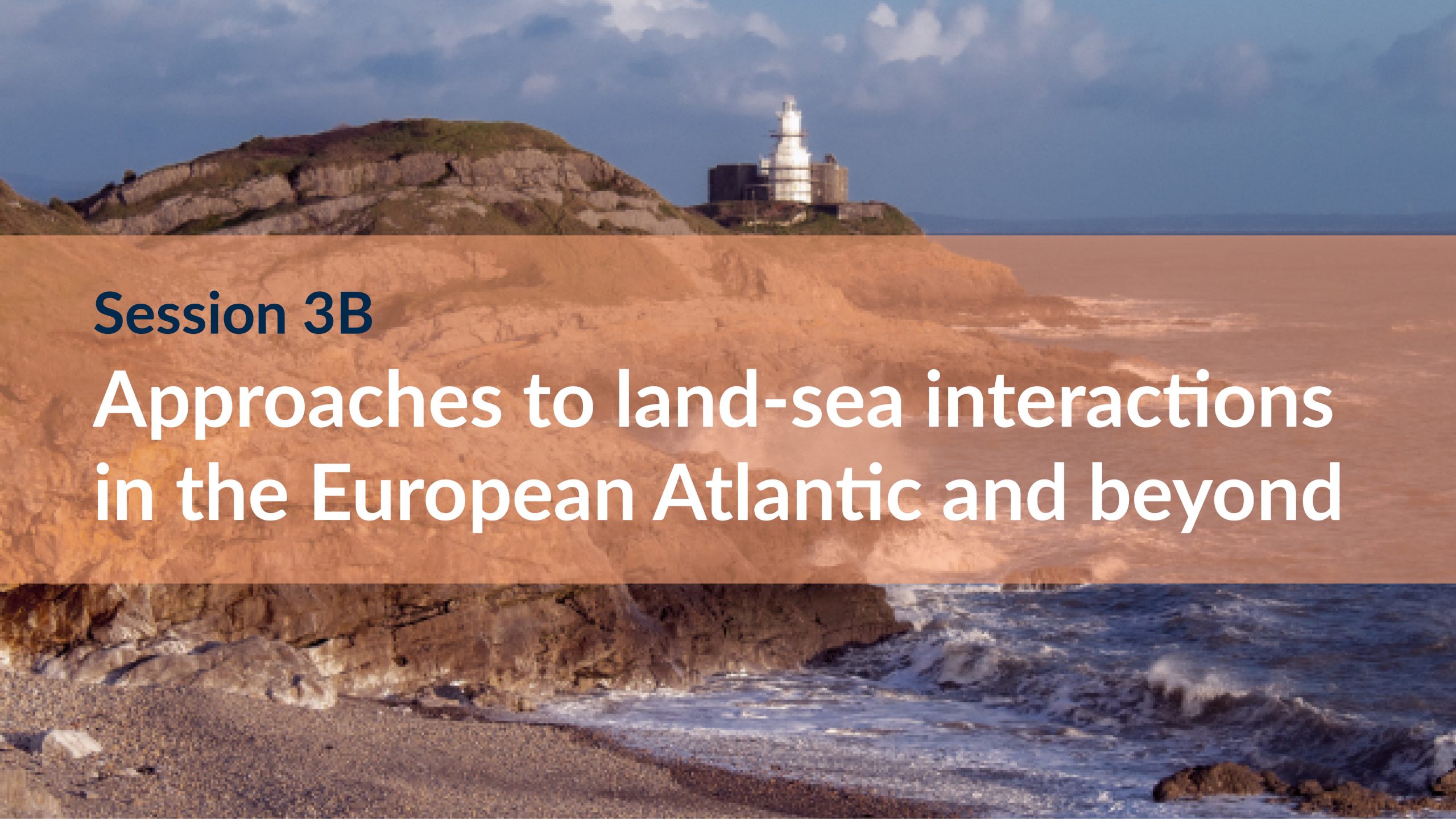
Examining different approaches to land-sea interactions and their suitability in addressing LSI risks and opportunities, using case studies from the European Atlantic and elsewhere, and taking into account aspects such as timescales, funding and resources.
Chair:
Emma McKinley, Cardiff University
Speakers and panellists:
Marina Markovic, United Nations Environment Programme PAP/RAC: Methodological guidelines to perform LSI analysis within MSP in the Mediterranean context Session-3B-MM.pdf
Andrea Morf, Nordregio / Gothenburg University
Alice Guittard, ICRE8: Coastal collaborative land-sea interaction platform Session-3B-AG.pdf
Stephen Jay, University of Liverpool: Investigating Land-Sea interactions in the Irish Sea and beyond Session-3B-SJ.pdf
Martina Bocci, t-ELIKA
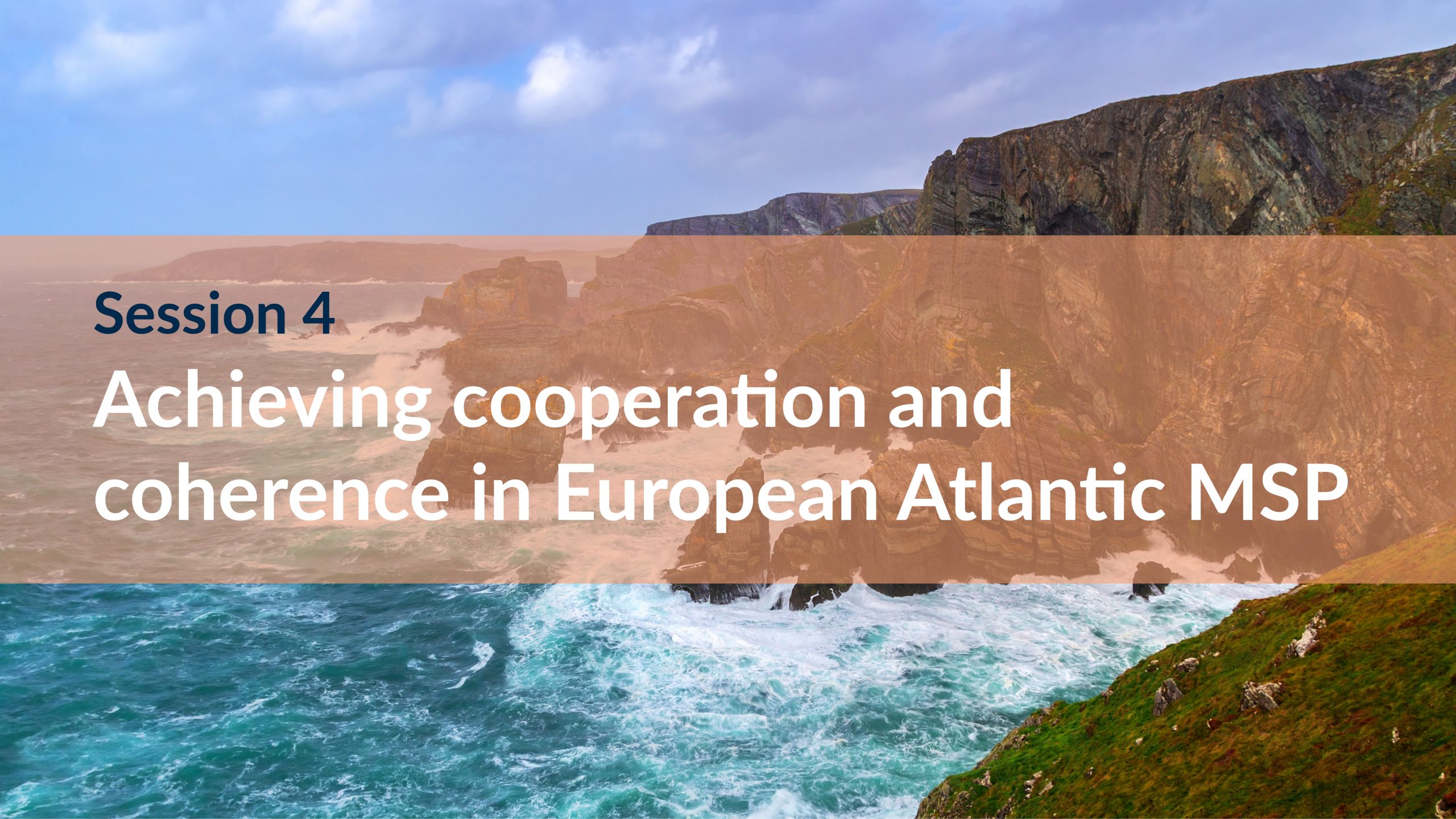
Final messages from the SIMAtlantic project, perspectives on cooperation in the European Atlantic area and future work to be done on MSP.
Chair:
Ana Paula Simão, Direção-Geral de Recursos Naturais, Segurança e Serviços Marítimos (DGRM)
Speakers:
Anne Marie O’Hagan, MaREI Centre, University College Cork: Summary of parallel sessions Session-4-AMOH.pdf
Tom Woolley, Department of Housing, Local Government and Heritage
David Sanmiguel-Esteban, CINEA: MSP support needs Session-4-DS.pdf
Dymphna Keogh, Department of Foreign Affairs
Niccolò Bassan, Marine Planners / United Nations Environment Programme: Achieving cooperation and coherence in European Atlantic MSP Session-4-NB.pdf



